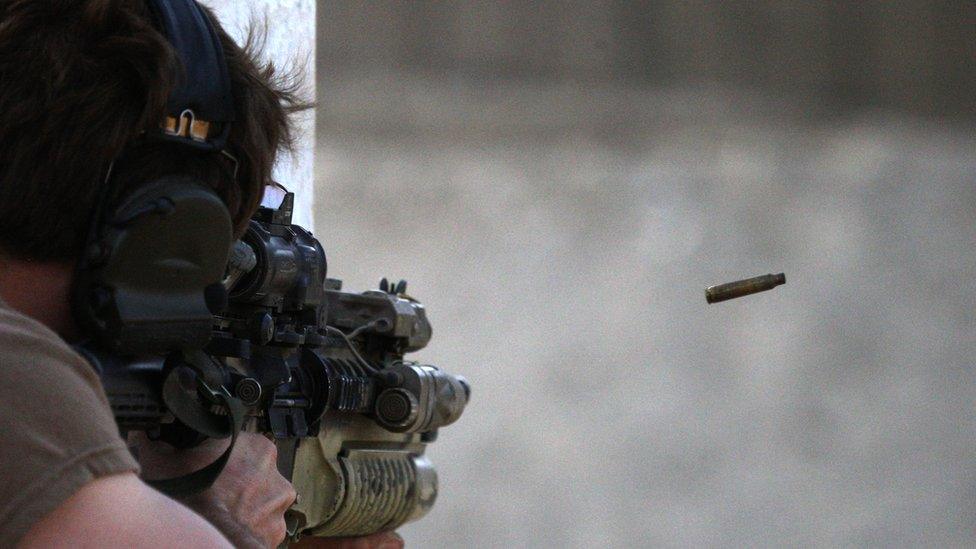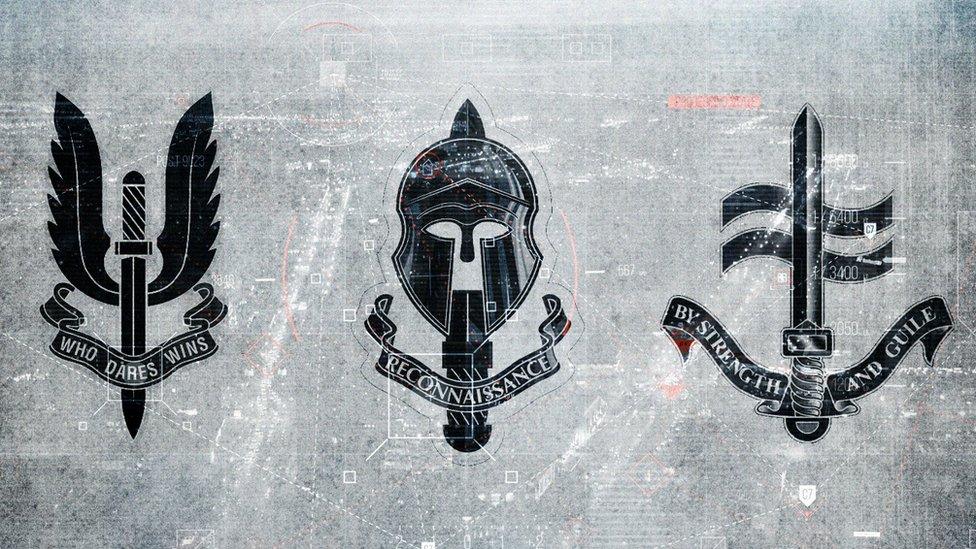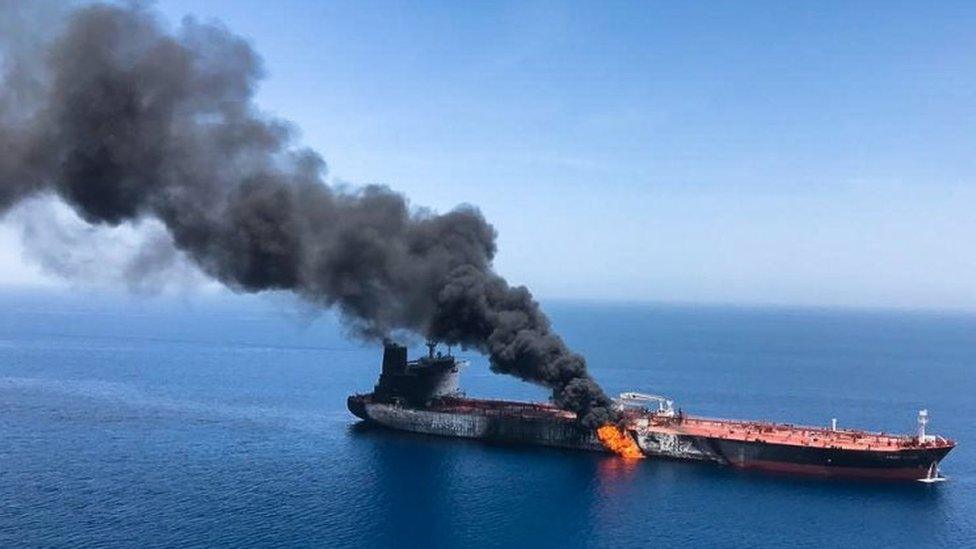UK's special forces set for new Russia mission
- Published

The SAS and other UK Special Forces (UKSF) are poised to receive a new mission countering Russian and other forces around the world.
The plan is called 'Special Operations Concept' and has been drawn up by the senior officer in charge of the special forces, the Director Special Forces (DSF).
According to people familiar with what's in it, part of the concept involves changing both the structure of the military's secretive units and what they do.
The plan is currently being considered by military chiefs, Whitehall insiders tell me, and will soon be sent to ministers and is likely to be approved.
The Ministry of Defence has said it does not comment on the UK Special Forces.
UK Special Forces are meant to provide more options for low-profile actions in places where overtly committing conventional troops would be difficult.
For example, under the new plan, an operation might be mounted in a Baltic republic or African country in order to uncover and pinpoint Russian covert activities.
Then a decision would be made as to whether to make public what had been learned, or to cooperate secretly with local security forces in order to disrupt it.
The new missions would take UKSF units in a less "kinetic" or violent direction - after almost 20 years of man-hunting strike missions in the Middle East and Afghanistan - and into closer cooperation with allied intelligence agencies and MI6.

There are three main elements of the UK's Special Forces
"The counter-terrorist task is drawing down, while the need to confront dangerous international behaviour by peer adversaries is increasing," says one source.
Following the defeat of the last pocket of Islamic State group, missions in Syria and Iraq are declining.
And so in staking out new territory, the DSF seems to be trying to give new priorities to the units under their command at a time of financial stringency.
There are three main elements of the UK's Special Forces: the regular Special Air Service regiment (22 SAS), the Special Boat Service (SBS), and Special Reconnaissance Regiment (SRR).
The role of the SRR, which carries out covert surveillance, would grow under the Special Operations Concept.
Military chiefs believe Russia has been using its military intelligence arm, the GRU, effectively in Ukraine, Syria and Africa.
"Right now, you do nothing or you escalate," one senior officer says. "We want to expand that competitive space."
The UK government has said the GRU was behind the 2018 Salisbury attack, in which Sergei Skripal and his daughter, Yulia, were poisoned with a nerve agent.
At a London conference earlier this month, Chief of General Staff General Sir Mark Carleton-Smith referred to "authoritarian regimes" rather than mentioning Russia by name, noting they had managed to "exploit that hybrid space between those two increasingly redundant states of 'peace' and 'war'".
Operating in the 'grey zone'
This type of unstated conflict between states is often referred to as "the grey zone".
Recent attacks on tankers in the Gulf are an example of this, with states - believed to be Iran, Saudi Arabia and the Emirates - acting covertly, either directly or through proxies.
Experts across the West are seeking out the right responses to hostile acts that fall short of the threshold of all-out war. Such responses could include an increased emphasis on information and cyber operations.
The SRR is trained in a variety of techniques including physical and technical surveillance, such as planting cameras in insurgent-held territory, eavesdropping and close-proximity hacking.
It remains up for debate whether this new concept would see the stepping up of a shadow war against proxy forces - serving the interests of countries such as China, Iran and Russia - that could occasionally turn violent.
British politicians' appetite for risk is limited and the capture of a party of Special Forces operators and MI6 officers in Libya eight years ago showed the potential for embarrassment that comes with such missions.
You can watch Newsnight on BBC Two weekdays at 22:30 or on iPlayer, subscribe to the programme on YouTube, external and follow it on Twitter, external.
- Published13 June 2019

